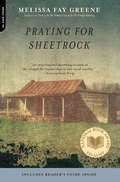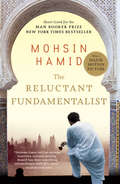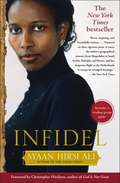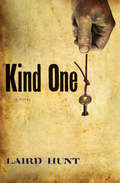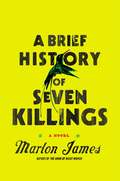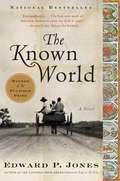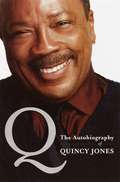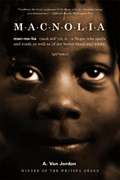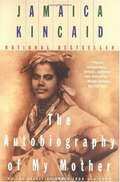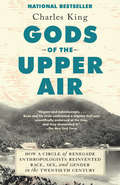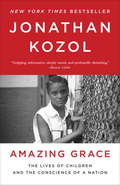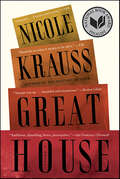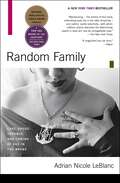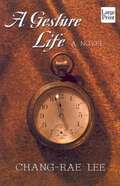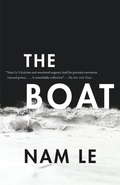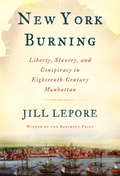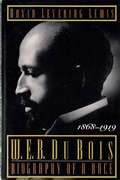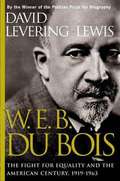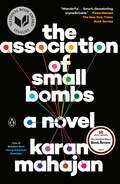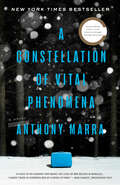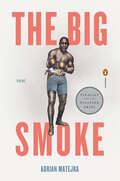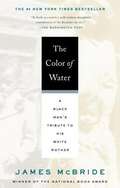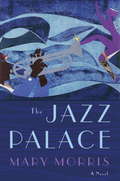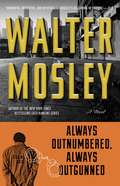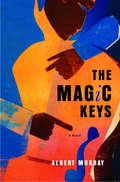Special Collections
Anisfield-Wolf Book Award
Description: The Anisfield-Wolf Book Award recognizes books that make important contributions to understanding racism and help develop an appreciation of the rich diversity of human cultures. #award
- Table View
- List View
Praying For Sheetrock
by Melissa Fay GreeneFinalist for the 1991 National Book Award and a New York Times Notable book, Praying for Sheetrock is the story of McIntosh County, a small, isolated, and lovely place on the flowery coast of Georgia--and a county where, in the 1970s, the white sheriff still wielded all the power, controlling everything and everybody. Somehow the sweeping changes of the civil rights movement managed to bypass McIntosh entirely. It took one uneducated, unemployed black man, Thurnell Alston, to challenge the sheriff and his courthouse gang--and to change the way of life in this community forever.
The Reluctant Fundamentalist
by Mohsin HamidAt a café table in Lahore, a bearded Pakistani man converses with an uneasy American stranger. As dusk deepens to night, he begins the tale that has brought them to this fateful meeting . . . Changez is living an immigrant’s dream of America.
At the top of his class at Princeton, he is snapped up by the elite "valuation" firm of Underwood Samson. He thrives on the energy of New York, and his infatuation with elegant, beautiful Erica promises entry into Manhattan society at the same exalted level once occupied by his own family back in Lahore.
But in the wake of September 11, Changez finds his position in his adopted city suddenly overturned, and his budding relationship with Erica eclipsed by the reawakened ghosts of her past. And Changez’s own identity is in seismic shift as well, unearthing allegiances more fundamental than money, power, and maybe even love.
Infidel
by Ayaan Hirsi AliOne of today&’s most admired and controversial political figures, Ayaan Hirsi Ali burst into international headlines following the murder of Theo van Gogh by an Islamist who threatened that she would be next. She made headlines again when she was stripped of her citizenship and resigned from the Dutch Parliament.Infidel shows the coming of age of this distinguished political superstar and champion of free speech as well as the development of her beliefs, iron will, and extraordinary determination to fight injustice. Raised in a strict Muslim family, Hirsi Ali survived civil war, female mutilation, brutal beatings, adolescence as a devout believer during the rise of the Muslim Brotherhood, and life in four troubled, unstable countries ruled largely by despots. She escaped from a forced marriage and sought asylum in the Netherlands, where she earned a college degree in political science, tried to help her tragically depressed sister adjust to the West, and fought for the rights of Muslim women and the reform of Islam as a member of Parliament. Under constant threat, demonized by reactionary Islamists and politicians, disowned by her father, and expelled from family and clan, she refuses to be silenced. Ultimately a celebration of triumph over adversity, Hirsi Ali’s story tells how a bright little girl evolves out of dutiful obedience to become an outspoken, pioneering freedom fighter. As Western governments struggle to balance democratic ideals with religious pressures, no other book could be more timely or more significant.
Kind One
by Laird HuntAs a teenage girl, Ginny marries Linus Lancaster, her mother's second cousin, and moves to his Kentucky pig farm "ninety miles from nowhere."
In the shadows of the lush Kentucky landscape, Ginny discovers the empty promises of Linus' "paradise"--a place where the charms of her husband fall away to reveal a troubled man and cruel slave owner. Ginny befriends the young slaves Cleome and Zinnia who work at the farm--until Linus' attentions turn to them, and she finds herself torn between her husband and only companions.
The events that follow Linus' death change all three women for life. Haunting, chilling, and suspenseful, Kind One is a powerful tale of redemption and human endurance in antebellum America.
Laird Hunt is the author of several works of fiction and a finalist for the 2010 PEN Center USA Award in Fiction. Currently on the faculty of the University of Denver's creative writing program, he and his wife, the poet Eleni Sikelianos, live in Boulder, Colorado, with their daughter, Eva Grace.
A Brief History of Seven Killings
by Marlon JamesIn A Brief History of Seven Killings, Marlon James combines brilliant storytelling with his unrivaled skills of characterization and meticulous eye for detail to forge an enthralling novel of dazzling ambition and scope.
On December 3, 1976, just before the Jamaican general election and two days before Bob Marley was to play the Smile Jamaica Concert to ease political tensions in Kingston, seven gunmen stormed the singer’s house, machine guns blazing. The attack wounded Marley, his wife, and his manager, and injured several others. Little was officially released about the gunmen, but much has been whispered, gossiped and sung about in the streets of West Kingston. Rumors abound regarding the assassins’ fates, and there are suspicions that the attack was politically motivated.
A Brief History of Seven Killings delves deep into that dangerous and unstable time in Jamaica’s history and beyond. James deftly chronicles the lives of a host of unforgettable characters – gunmen, drug dealers, one-night stands, CIA agents, even ghosts – over the course of thirty years as they roam the streets of 1970s Kingston, dominate the crack houses of 1980s New York, and ultimately reemerge into the radically altered Jamaica of the 1990s. Along the way, they learn that evil does indeed cast long shadows, that justice and retribution are inextricably linked, and that no one can truly escape his fate.
Gripping and inventive, shocking and irresistible, A Brief History of Seven Killings is a mesmerizing modern classic of power, mystery, and insight.
Winner of the 2015 Man Booker Prize
The Known World
by Edward JonesThe Known World tells the story of Henry Townsend, a black farmer and former slave who falls under the tutelage of William Robbins, the most powerful man in Manchester County, Virginia. Making certain he never circumvents the law, Townsend runs his affairs with unusual discipline. But when death takes him unexpectedly, his widow, Caldonia, can't uphold the estate's order, and chaos ensues. Jones has woven a footnote of history into an epic that takes an unflinching look at slavery in all its moral complexities.
Winner of the 2004 Pulitzer Prize for fiction and the 2003 National Book Critics Circle Award for Fiction. Finalist for the 2003 National Book Award for Fiction.
Q
by Quincy JonesQuincy Jones has won multiple grammy awards. He has been acknowledged as a masterful jazz, rock, and funk musician, has created some of the most memorable film scores of the pop era, and has sat at the production controls for numerous landmark albums, including Michael Jackson's Thriller, the biggest-selling long-player of all time.
Macnolia
by A. Van JordanIn 1936, teenager MacNolia Cox became the first African American finalist in the National Spelling Bee Competition. Supposedly prevented from winning, the precocious child who dreamed of becoming a doctor was changed irrevocably. Her story, told in a poignant nonlinear narrative, illustrates the power of a pivotal moment in a life.
Autobiography Of My Mother
by Jamaica KincaidKincaid's new and long-awaited novel is a powerful and unforgettable story of loss, longing, loving, and survival that resonants with the proud insurgence of the human will. The story of Xuela, whose mother dies at the moment she is born, presents "an indeliable portrait of an angry woman" (New York Times) "most comparable, perhaps, to Camus' The Stranger" (Washington Post Book World).
Gods of the Upper Air
by Charles KingNEW YORK TIMES BESTSELLER2020 Anisfield-Wolf Book Award WinnerFinalist for the National Book Critics Circle AwardFrom an award-winning historian comes a dazzling history of the birth of cultural anthropology and the adventurous scientists who pioneered it—a sweeping chronicle of discovery and the fascinating origin story of our multicultural world.A century ago, everyone knew that people were fated by their race, sex, and nationality to be more or less intelligent, nurturing, or warlike. But Columbia University professor Franz Boas looked at the data and decided everyone was wrong. Racial categories, he insisted, were biological fictions. Cultures did not come in neat packages labeled "primitive" or "advanced." What counted as a family, a good meal, or even common sense was a product of history and circumstance, not of nature. In Gods of the Upper Air, a masterful narrative history of radical ideas and passionate lives, Charles King shows how these intuitions led to a fundamental reimagining of human diversity. Boas's students were some of the century's most colorful figures and unsung visionaries: Margaret Mead, the outspoken field researcher whose Coming of Age in Samoa is among the most widely read works of social science of all time; Ruth Benedict, the great love of Mead's life, whose research shaped post-Second World War Japan; Ella Deloria, the Dakota Sioux activist who preserved the traditions of Native Americans on the Great Plains; and Zora Neale Hurston, whose studies under Boas fed directly into her now classic novel, Their Eyes Were Watching God. Together, they mapped civilizations from the American South to the South Pacific and from Caribbean islands to Manhattan's city streets, and unearthed an essential fact buried by centuries of prejudice: that humanity is an undivided whole. Their revolutionary findings would go on to inspire the fluid conceptions of identity we know today. Rich in drama, conflict, friendship, and love, Gods of the Upper Air is a brilliant and groundbreaking history of American progress and the opening of the modern mind.
Amazing Grace
by Jonathan KozolThe author of Savage Inequalities, a New York Times best-seller, and Rachel and Her Children, winner of the Robert F. Kennedy Book Award, tells the stories of a handful of children who have--through the love and support of their families and dedicated community leaders--not yet lost their battle with the perils of life in America's most hopeless, helpless, and dangerous neighborhoods.
Great House
by Nicole KraussNew York Times Bestseller • Finalist for the National Book Award • Winner of the Anisfield-Wolf Book Award • A Best Book of the Year as chosen by the New York Times (Notable), Seattle Times, San Francisco Chronicle, The Atlantic, St. Louis Post Dispatch, The Oregonian, and Book Page. "Masterful…Evocative and moving." —NPRFor twenty-five years, a reclusive American novelist has been writing at the desk she inherited from a young Chilean poet who disappeared at the hands of Pinochet’s secret police; one day a girl claiming to be the poet’s daughter arrives to take it away, sending the writer’s life reeling. Across the ocean, in the leafy suburbs of London, a man caring for his dying wife discovers, among her papers, a lock of hair that unravels a terrible secret. In Jerusalem, an antiques dealer slowly reassembles his father’s study, plundered by the Nazis in Budapest in 1944.Connecting these stories is a desk of many drawers that exerts a power over those who possess it or have given it away. As the narrators of Great House make their confessions, the desk takes on more and more meaning, and comes finally to stand for all that has been taken from them, and all that binds them to what has disappeared. Great House is a story haunted by questions: What do we pass on to our children and how do they absorb our dreams and losses? How do we respond to disappearance, destruction, and change?Nicole Krauss has written a soaring, powerful novel about memory struggling to create a meaningful permanence in the face of inevitable loss."This is a novel about the long journey of a magnificent desk as it travels through the twentieth century from one owner to the next. It is also a novel about love, exile, the defilements of war, and the restorative power of language." —National Book Award citation
Random Family
by Adrian Nicole LeblancRandom Family tells the American outlaw saga lurking behind the headlines of gangsta glamour, gold-drenched drug dealers, and street-corner society.
With an immediacy made possible only after ten years of reporting, Adrian Nicole LeBlanc immerses the reader in the mind-boggling intricacies of the little-known ghetto world. She charts the tumultuous cycle of the generations, as girls become mothers, mothers become grandmothers, boys become criminals, and hope struggles against deprivation.
Two romances thread through Random Family: the sexually charismatic nineteen-year-old Jessica's dizzying infatuation with a hugely successful young heroin dealer, Boy George, and fourteen-year-old Coco's first love with Jessica's little brother, Cesar, an aspiring thug.
Fleeing from family problems, the young couples try to outrun their destinies. Chauffeurs whisk them to getaways in the Poconos and to nightclubs. They cruise the streets in Lamborghinis and customized James Bond cars.
Jessica and Boy George ride the wild adventure between riches and ruin, while Coco and Cesar stick closer to the street, all four caught in a precarious dance between life and death.
Friends get murdered; the DEA and FBI investigate Boy George's business activities; Cesar becomes a fugitive; Jessica and Coco endure homelessness, betrayal, the heartbreaking separation of prison, and throughout it all, the insidious damage of poverty.
Together, then apart, the teenagers make family where they find it. Girls look for excitement and find trouble; boys, searching for adventure, join crews and prison gangs. Coco moves upstate to dodge the hazards of the Bronx; Jessica seeks solace in romance. Both find that love is the only place to go.
A gifted prose stylist and a profoundly compassionate observer, Adrian Nicole LeBlanc has slipped behind the cold statistics and sensationalism surrounding inner-city life and come back with a riveting, haunting, and true urban soap opera that reveals the clenched grip of the streets.
Random Family is a compulsive read and an important journalistic achievement, sure to take its place beside the classics of the genre.
A Gesture Life
by Chang-Rae LeeFranklin Hada has lived for 30 years in Bedley Run, New York. He has been respected and has been able to keep his dark secret. Now his adopted daughter and her son enter his life. Can he keep his respectability or will his life unravel?
The Boat
by Nam LeThis astonishing range is topped and tailed by accounts of the uneasy reunion of a young Vietnamese writer in America with his ex-soldier father, and by the title story - the escape of a group of exhausted refugees from the Vietcong in a wallowing boat.
New York Burning
by Jill LeporeOver a frigid few weeks in the winter of 1741, ten fires blazed across Manhattan. With each new fire, panicked whites saw more evidence of a slave uprising. In the end, thirteen black men were burned at the stake, seventeen were hanged and more than one hundred black men and women were thrown into a dungeon beneath City Hall.
In New York Burning, Bancroft Prize-winning historian Jill Lepore recounts these dramatic events, re-creating, with path-breaking research, the nascent New York of the seventeenth century. Even then, the city was a rich mosaic of cultures, communities and colors, with slaves making up a full one-fifth of the population. Exploring the political and social climate of the times, Lepore dramatically shows how, in a city rife with state intrigue and terror, the threat of black rebellion united the white political pluralities in a frenzy of racial fear and violence.
W. E. B. Du Bois
by David Levering LewisA definitive biography of the African-American author and scholar describes Du Bois's formative years, the evolution of his philosophy, and his roles as a founder of the NAACP and architect of the American civil rights movement.
Pulitzer Prize Winner
W.E.B. Du Bois
by David Levering LewisThe second volume of the Pulitzer Prize--winning biography that The Washington Post hailed as "an engrossing masterpiece"
Charismatic, singularly determined, and controversial, W.E.B. Du Bois was a historian, novelist, editor, sociologist, founder of the NAACP, advocate of women's rights, and the premier architect of the Civil Rights movement. His hypnotic voice thunders out of David Levering Lewis's monumental biography like a locomotive under full steam.
This second volume of what is already a classic work begins with the triumphal return from WWI of African American veterans to the shattering reality of racism and lynching even as America discovers the New Negro of literature and art. In stunning detail, Lewis chronicles the little-known political agenda behind the Harlem Renaissance and Du Bois's relentless fight for equality and justice, including his steadfast refusal to allow whites to interpret the aspirations of black America. Seared by the rejection of terrified liberals and the black bourgeoisie during the Communist witch-hunts, Du Bois ended his days in uncompromising exile in newly independent Ghana. In re-creating the turbulent times in which he lived and fought, Lewis restores the inspiring and famed Du Bois to his central place in American history.
Pulitzer Prize Winner
The Association of Small Bombs
by Karan MahajanFor readers of Mohsin Hamid, Dave Eggers, Arundhati Roy, and Teju Cole, The Association of Small Bombs is an expansive and deeply humane novel that is at once groundbreaking in its empathy, dazzling in its acuity, and ambitious in scope
When brothers Tushar and Nakul Khurana, two Delhi schoolboys, pick up their family’s television set at a repair shop with their friend Mansoor Ahmed one day in 1996, disaster strikes without warning. A bomb—one of the many “small” bombs that go off seemingly unheralded across the world—detonates in the Delhi marketplace, instantly claiming the lives of the Khurana boys, to the devastation of their parents. Mansoor survives, bearing the physical and psychological effects of the bomb.
After a brief stint at university in America, Mansoor returns to Delhi, where his life becomes entangled with the mysterious and charismatic Ayub, a fearless young activist whose own allegiances and beliefs are more malleable than Mansoor could imagine. Woven among the story of the Khuranas and the Ahmeds is the gripping tale of Shockie, a Kashmiri bomb maker who has forsaken his own life for the independence of his homeland.
Karan Mahajan writes brilliantly about the effects of terrorism on victims and perpetrators, proving himself to be one of the most provocative and dynamic novelists of his generation.
A Constellation of Vital Phenomena
by Anthony MarraA haunting novel set in a nearly abandoned hospital in war-torn Chechnya that is both intimate and ambitious in scope. Eight-year-old Havaa, Akhmed, the neighbour who rescues her after her father's disappearance, and Sonia, the doctor who shelters her over 5 dramatic days in December 2004, must all reach back into their pasts to unravel the intricate mystery of coincidence, betrayal and forgiveness which unexpectedly binds them and decides their fate. In his bold debut, Anthony Marra proves that sometimes fiction can tell us the truth of the world far better, and far more powerfully, than any news story. You will not forget the world he creates--A Constellation of Vital Phenomena and its characters will haunt you long after you turn the final page.
The Big Smoke
by Adrian MatejkaA finalist for both the Pulitzer Prize and the National Book Award in Poetry--a collection that examines the myth and history of the prizefighter Jack Johnson The legendary Jack Johnson (1878-1946) was a true American creation. The child of emancipated slaves, he overcame the violent segregationism of Jim Crow, challenging white boxers--and white America--to become the first African-American heavyweight world champion. The Big Smoke, Adrian Matejka's third work of poetry, follows the fighter's journey from poverty to the most coveted title in sports through the multi-layered voices of Johnson and the white women he brazenly loved. Matejka's book is part historic reclamation and part interrogation of Johnson's complicated legacy, one that often misremembers the magnetic man behind the myth.
The Color of Water
by James McbrideWho is Ruth McBride Jordan? A self-declared "light-skinned" woman evasive about her ethnicity, yet steadfast in her love for her twelve black children.
James McBride, journalist, musician, and son, explores his mother's past, as well as his own upbringing and heritage, in a poignant and powerful debut,The Color Of Water: A Black Man's Tribute to His White Mother.
The son of a black minister and a woman who would not admit she was white, James McBride grew up in "orchestrated chaos" with his eleven siblings in the poor, all-black projects of Red Hook, Brooklyn.
"Mommy," a fiercely protective woman with "dark eyes full of pep and fire," herded her brood to Manhattan's free cultural events, sent them off on buses to the best (and mainly Jewish) schools, demanded good grades, and commanded respect.
As a young man, McBride saw his mother as a source of embarrassment, worry, and confusion-and reached thirty before he began to discover the truth about her early life and long-buried pain.
In The Color of Water, McBride retraces his mother's footsteps and, through her searing and spirited voice, recreates her remarkable story. The daughter of a failed itinerant Orthodox rabbi, she was born Rachel Shilsky (actually Ruchel Dwara Zylska) in Poland on April 1, 1921.
Fleeing pogroms, her family emigrated to America and ultimately settled in Suffolk, Virginia, a small town where anti-Semitism and racial tensions ran high.
With candor and immediacy, Ruth describes her parents' loveless marriage; her fragile, handicapped mother; her cruel, sexually-abusive father; and the rest of the family and life she abandoned.
At seventeen, after fleeing Virginia and settling in New York City, Ruth married a black minister and founded the all- black New Brown Memorial Baptist Church in her Red Hook living room. "God is the color of water," Ruth McBride taught her children, firmly convinced that life's blessings and life's values transcend race.
Twice widowed, and continually confronting overwhelming adversity and racism, Ruth's determination, drive and discipline saw her dozen children through college-and most through graduate school.
At age 65, she herself received a degree in social work from Temple University.
Interspersed throughout his mother's compelling narrative, McBride shares candid recollections of his own experiences as a mixed-race child of poverty, his flirtations with drugs and violence, and his eventual self- realization and professional success.
The Color of Water touches readers of all colors as a vivid portrait of growing up, a haunting meditation on race and identity, and a lyrical valentine to a mother from her son.
The Jazz Palace
by Mary MorrisAcclaimed author Mary Morris returns to her Chicago roots in this sweeping novel that brilliantly captures the dynamic atmosphere and the dazzling music of the Jazz Age.
In the midst of boomtown Chicago, two Jewish families have suffered terrible blows. The Lehrmans, who run a small hat factory, lost their beloved son Harold in a blizzard. The Chimbrovas, who run a saloon, lost three of their boys on the SS Eastland when it sank in 1915. Each family holds out hope that one of their remaining children will rise to carry on the family business. But Benny Lehrman has no interest in making hats. His true passion is piano--especially jazz.
At night he sneaks down to the South Side, slipping into predominantly black clubs to hear jazz groups play. One night he is called out and asked to "sit in" on a group. His playing is first-rate, and the other musicians are impressed. One of them, the trumpeter, a black man named Napoleon, becomes Benny's close friend and musical collaborator, and their adventures together take Benny far from the life he knew as a delivery boy. Pearl Chimbrova recognizes their talent and invites them to start playing at her family's saloon, which Napoleon dubs "The Jazz Palace."
But Napoleon's main gig is at a mob establishment, which doesn't take too kindly to freelancing. And as the '20s come to a close and the bubble of prosperity collapses, Benny, Napoleon, and Pearl must all make hard choices between financial survival and the music they love.
Always Outnumbered, Always Outgunned
by Walter Mosley"Mournful, insightful, and mystical...Mosley's best work of fiction." —Elle New York Times bestselling author Walter Mosley introduces us to Socrates Fortlow, an "astonishing character" (Los Angeles Times Book Review) in this acclaimed collection of linked stories."I either committed a crime or had a crime done to me every day I was in jail. Once you go to prison you belong there." Socrates Fortlow has done his time: twenty-seven years for murder and rape, acts forged by his own two rock-breaking hands. Now, he has come home to a new kind of prison: two battered rooms in an abandoned building in Watts. Working a dead-end job at the supermarket and moving perilously close to invisibility, Socrates seeks inner truth and redemption amid the violence and hopelessness of South Central Los Angeles. In fourteen intertwining tales, Socrates grapples with situations that are never easy as he attempts to hold on to a job and offer a lifeline to a young man on his same bloodstained path. In Socrates's battle-scarred wisdom, there is hope of turning the world around in this "powerful, hard-hitting, unrelenting, poignant short fiction" (Booklist).
The Magic Keys
by Albert MurrayIf Gabriel García Márquez had chosen to write about Pakistani immigrants in England, he might have produced a novel as beautiful and devastating asMaps for Lost Lovers. Jugnu and Chanda have disappeared. Like thousands of people all over Enland, they were lovers and living together out of wedlock. To Chanda’s family, however, the disgrace was unforgivable. Perhaps enough so as to warrant murder. As he explores the disappearance and its aftermath through the eyes of Jugnu’s worldly older brother, Shamas, and his devout wife, Kaukab, Nadeem Aslam creates a closely observed and affecting portrait of people whose traditions threaten to bury them alive. The result is a tour de force, intimate, affecting, tragic and suspenseful. From the Trade Paperback edition.
